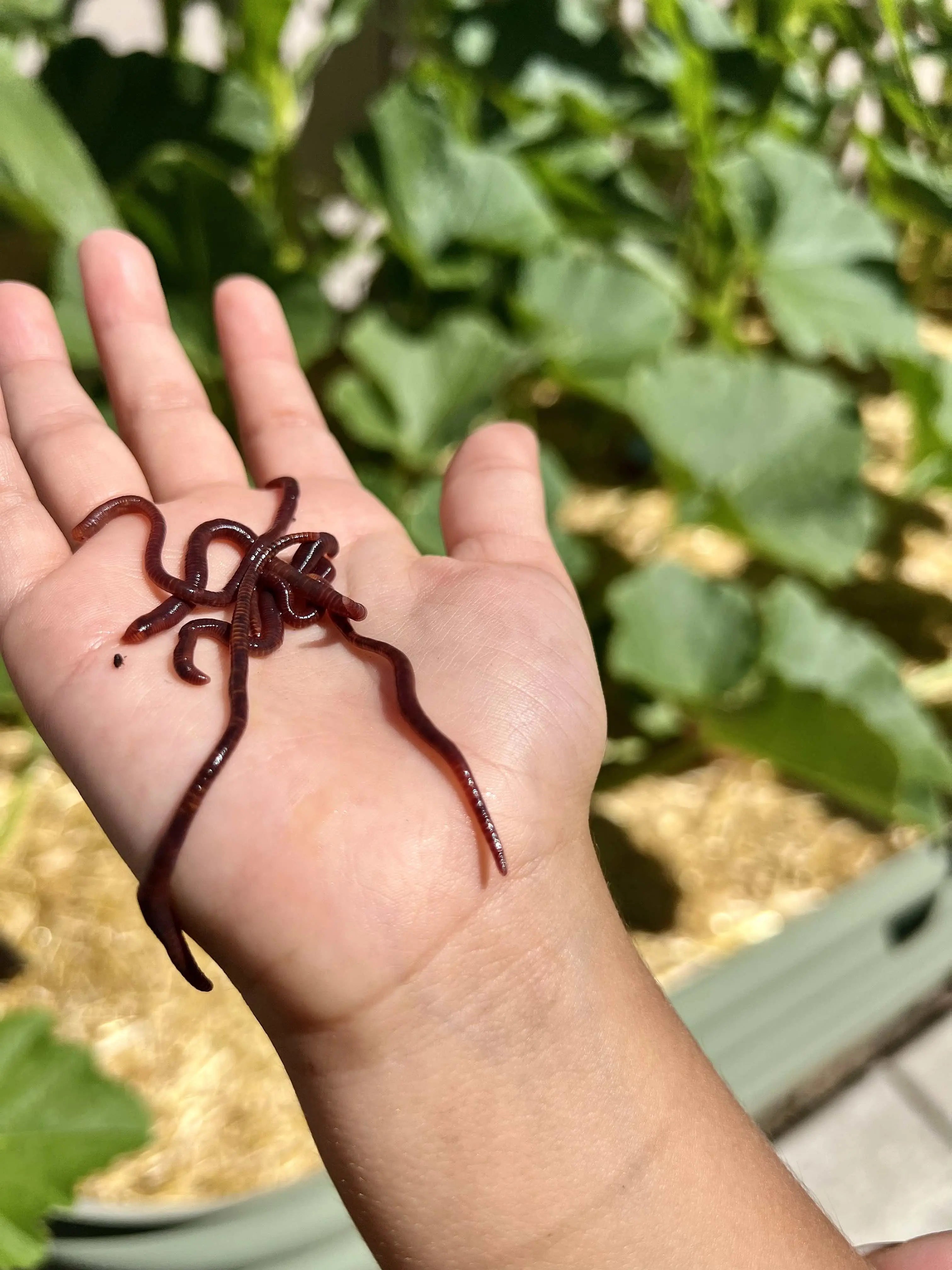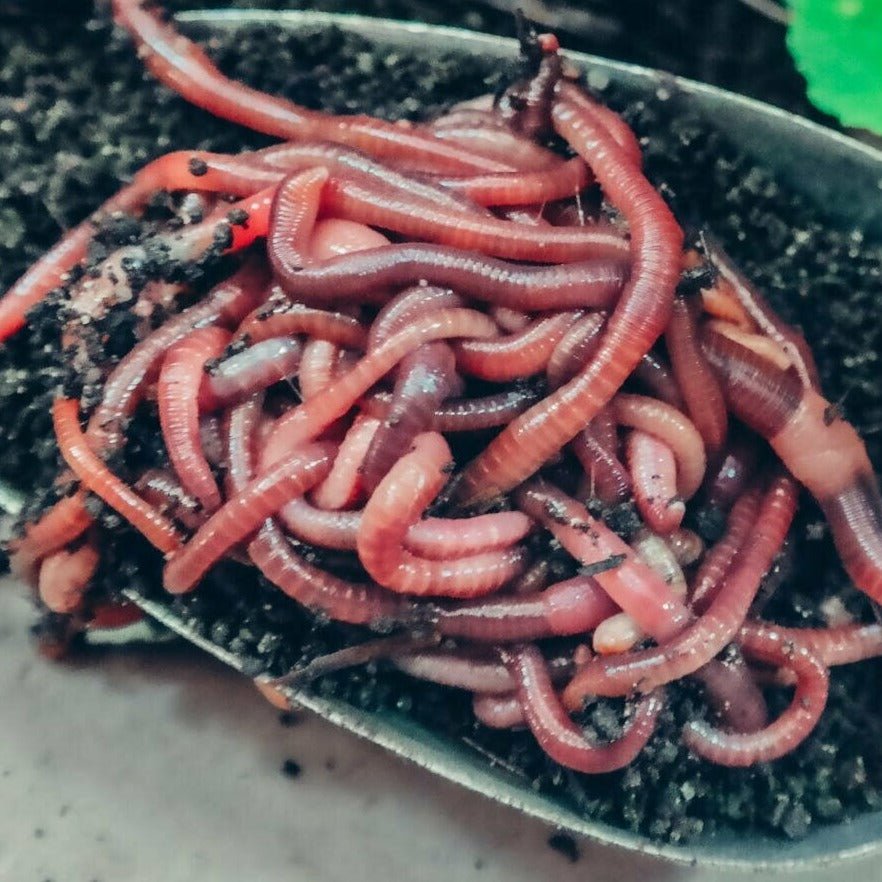Discover How Lake Hickory Bait Can Enhance Your Lawn’s Growth and Vitality
Discover How Lake Hickory Bait Can Enhance Your Lawn’s Growth and Vitality
Blog Article
The Amazing World of Red Wigglers: Boost Your Soil Fertility Today
The duty of red wigglers, or Eisenia fetida, in enhancing dirt fertility is a subject of expanding passion amongst garden enthusiasts and farming professionals. These tiny yet reliable organisms transform natural waste right into important worm spreadings, substantially improving soil health and wellness and promoting lasting techniques. As we check out the benefits of vermicomposting and the practical actions to develop a reliable worm bin, the prospective effect of these worms on your gardening success ends up being significantly noticeable. Recognizing the nuances of their care and application may simply change the method you come close to soil monitoring. What understandings can be obtained from integrating these impressive creatures into your gardening routine?
Understanding Red Wigglers
Red wigglers, clinically called Eisenia fetida, are a types of earthworm that play an essential duty in improving dirt fertility. These worms prosper in organic-rich atmospheres, such as compost heap and rotting plant product, where they eat organic waste and secrete nutrient-dense spreadings. Their distinct anatomy, featuring a fractional body and a clitellum, enables them to duplicate swiftly and effectively process big quantities of raw material.

The eco-friendly significance of red wigglers expands past plain waste processing; they add to the dirt food internet, promoting a diverse neighborhood of bacteria that further enhance dirt health and wellness. Recognizing the biology and habits of red wigglers is essential for harnessing their complete capacity in lasting agriculture and gardening methods.
Benefits of Vermicomposting
(Red Wiggler Express)Using the power of red wigglers with vermicomposting deals many benefits that considerably boost soil health and wellness and fertility. Among the key benefits is the production of nutrient-rich worm castings, which are a superb natural plant food. Red Wiggler Express. These castings have necessary nutrients like nitrogen, phosphorus, and potassium, advertising durable plant growth and improving plant returns
The presence of worm castings improves soil texture, enabling for better water retention and water drainage. Red wigglers aid break down organic issue, speeding up decomposition and reusing nutrients back into the soil.
Vermicomposting likewise cultivates microbial activity, which is essential for a healthy soil ecological community. Beneficial microbes thrive in the presence of worm castings, assisting in the breakdown of natural products and improving nutrient accessibility to plants.
Last but not least, vermicomposting functions as an efficient waste management solution, decreasing land fill waste by recycling kitchen scraps and various other organic materials. This not only adds to ecological sustainability but likewise advertises a circular economy within gardening and agriculture.
Just How to Set Up a Worm Bin
Setting up a worm bin is an uncomplicated procedure that can dramatically enhance your composting initiatives. Begin by selecting an appropriate container, which can range from a readily readily right here available worm container to a basic plastic or wooden box (Red Wiggler Express). Guarantee the container has ample air flow; small openings in the lid and sides will promote air flow
Next, create a bed linens layer to offer a comfortable setting for the red wigglers. This can be made from shredded paper, cardboard, or coconut coir, dampened to a moist, sponge-like consistency. Fill the bin to about one-third complete with this bedding material.
As soon as the bed linen is prepared, it's time to present the worms. Red wigglers grow in natural waste, so place them delicately onto the bedding. Cover the worms with a light layer of added bedding to aid them acclimate.
Feeding Your Red Wigglers
Giving the ideal food for your red wigglers is crucial for their health and the effectiveness of your composting system. Red wigglers thrive on a diverse diet, primarily including natural materials such as fruit and vegetable scraps, coffee grounds, and shredded paper. These products not only provide vital nutrients however likewise add to the microbial task in the worm container, which is crucial for the worms' digestion.
It is necessary to avoid particular foods, such as milk products, oils, and meats, as these can bring in insects and develop undesirable smells. Additionally, citrus peels and extremely hot foods must be limited because of their prospective to hurt the worms. A well balanced method to feeding entails checking the quantity of food presented to the container, making sure that it is eaten within an affordable time structure to stop excess waste accumulation.
To promote optimal food digestion, it is advantageous to chop or shred bigger food products before including them to the container. This technique raises the surface for microbial activity, facilitating quicker disintegration and boosting the general efficiency of your composting system. On a regular basis observing the worms' feeding habits will aid you change their diet plan as essential.
Utilizing Worm Spreadings in Your Yard

(Red Wiggler Express)Integrating worm spreadings right into your garden can be completed by blending them right into the soil or using them as a leading dressing. The slow-release nature of these castings ensures that nutrients are available to plants over a prolonged duration, minimizing the demand for synthetic fertilizers. Additionally, worm castings have helpful microbes that advertise healthy and balanced dirt environments, improving the general resilience of your yard.
To maximize the advantages, purpose to use roughly one part worm spreadings to 3 parts soil in your growing beds. Regular applications can result in enhanced crop yields and much healthier plants, making worm spreadings an indispensable source for both newbie and seasoned garden enthusiasts alike. By using this all-natural modification, you can cultivate a successful garden while contributing to sustainable horticulture methods.
Conclusion
In final thought, red wigglers exhibit the important function of vermicomposting in enhancing soil fertility. Their capability to convert natural waste right into nutrient-rich spreadings dramatically enriches dirt framework and sustains microbial diversity.
Report this page